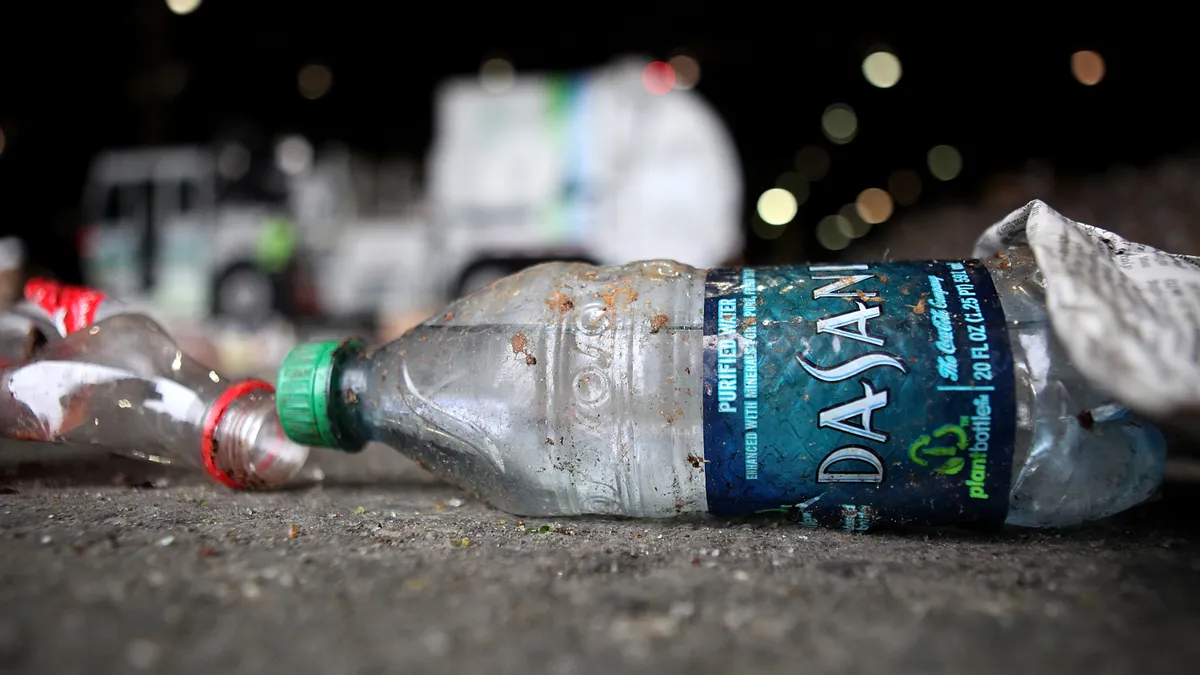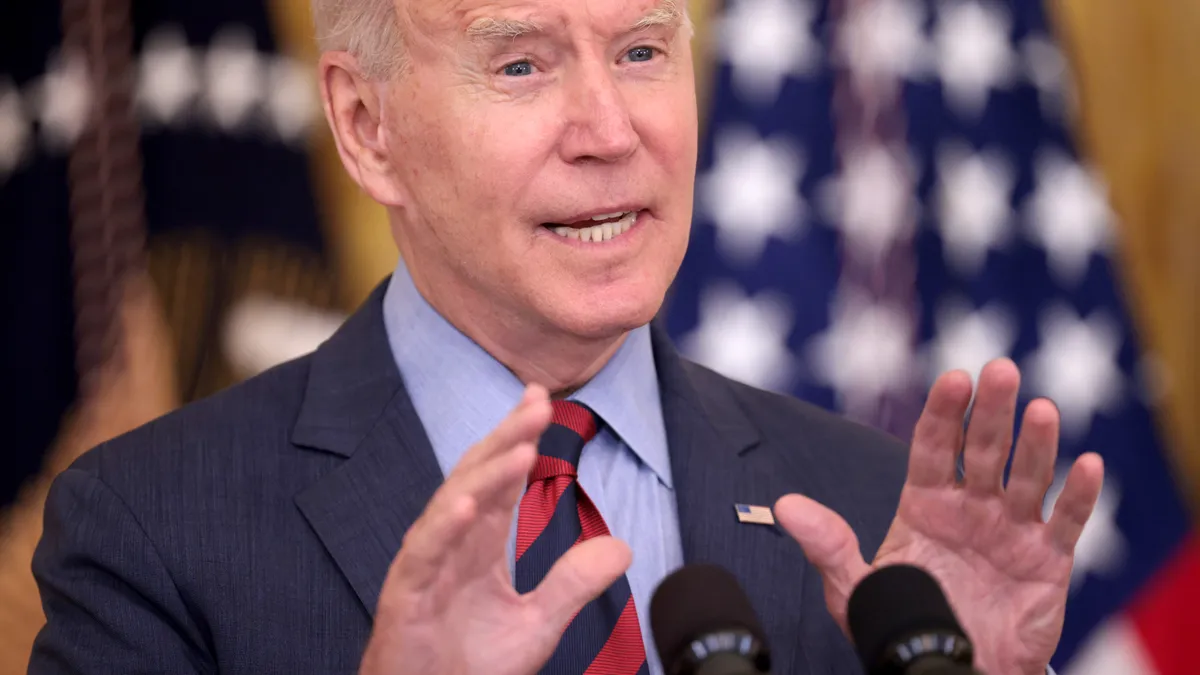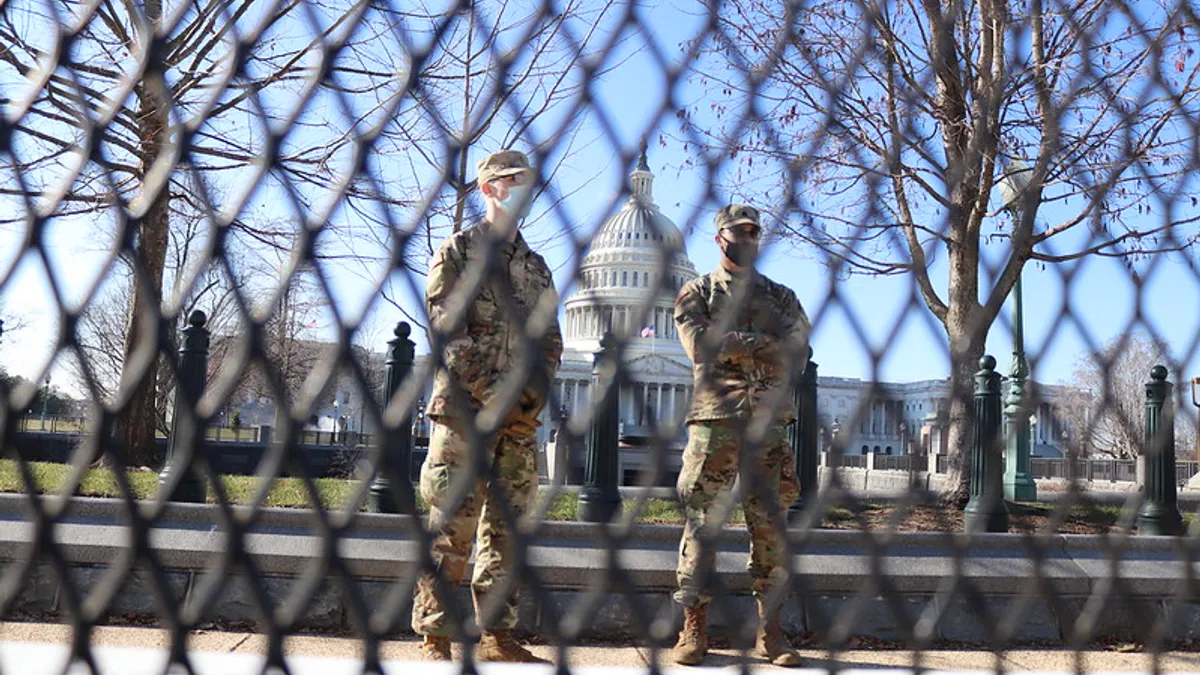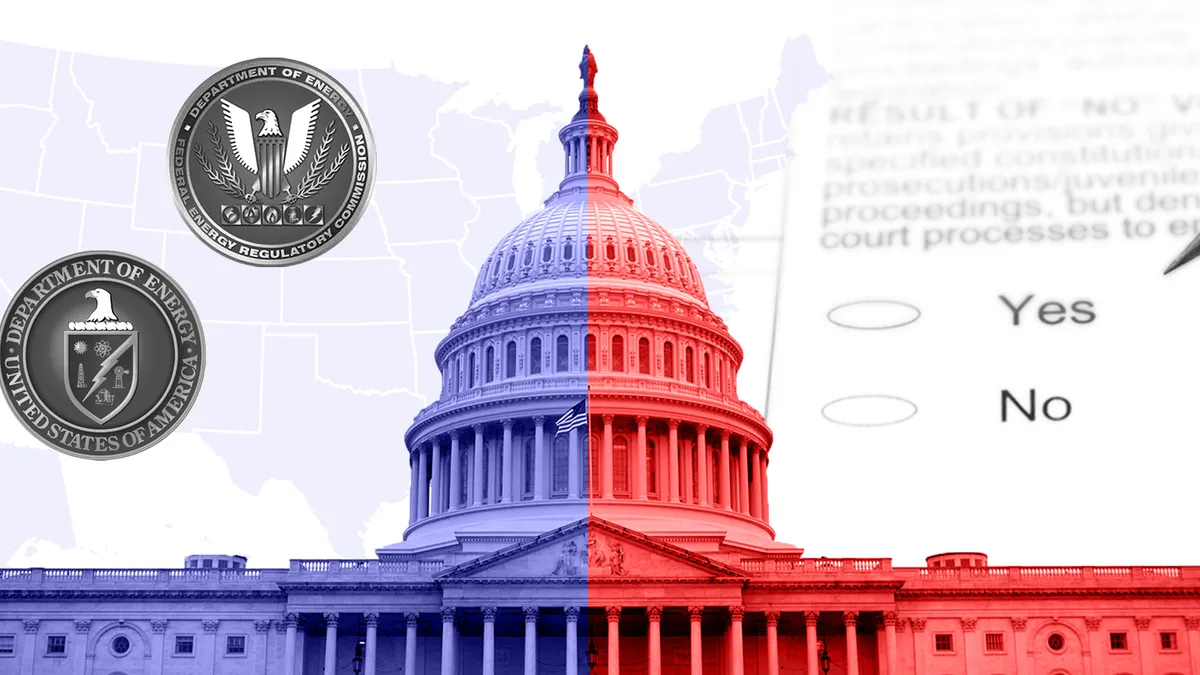Editor’s Note: Waste and recycling are inherently local issues in the United States, and we’re looking for new ways to highlight how these stories fit into broader trends. Send us your tips or feedback at waste.dive.editors@industrydive.com.
Support growing for curbside organics in Boston
In a potential sign of growing support for residential organics collection, all six of Boston’s leading mayoral candidates (including acting Mayor Kim Janey) expressed support for the concept in a recent forum.
While the group didn’t address implementation, multiple candidates discussed rising disposal costs as a key motivation for the push. A 2018 composition analysis estimated 36% of Boston’s waste stream is “compostable,” leading the city to set goals of launching pilot residential food scrap collection programs within five years and eventually expanding them citywide. Boston has expanded yard waste collection and is in the process of adding new food scrap drop-off sites through its Project Oscar program, but broader efforts have yet to move forward.
“It is a major budget issue for the City of Boston to continue how we are going now,” said Councilor Michelle Wu, calling for year-round yard waste collection and more efforts at city buildings to create “a new system of modeling everything that we are asking our residents to do as well.”
Waste issues came up throughout the event, hosted by The Boston Globe and Environmental League of Massachusetts, but candidates largely stuck to general support for more recycling access and education rather than specific plans. John Barros, Boston’s former chief of economic development, directly called for the city’s 2019 zero waste plan to be implemented and supported limiting the use of plastic water bottles. He also highlighted environmental justice issues, noting he had grown up in a neighborhood with multiple transfer stations.
Earlier that day in a council budget hearing, Public Works Department leadership declined to give a specific timeline for rolling out a city-supported organics subscription service or a full curbside collection program. As the agency recently told Waste Dive, its near-term plans are to hire new zero waste support staff to engage with different neighborhoods and to expand drop-off access in the meantime.
“We want the people that have no idea what the word compost or anaerobic digestion means. We want those folks to be the ones that are interested,” said Superintendent of Waste Reduction Brian Coughlin. “So we need to build up that demand. So by expanding Project Oscar, it's not just adding new bins and saying we're doing something, it's adding new bins to communities that don't even know what the program is.”
While Massachusetts has a growing number of city-supported subscription programs outside of Boston, neighboring Cambridge is the only municipality with a large-scale, citywide collection program. Desire for those types of programs is on the rise in the Northeast, as indicated by a similar level of support from New York City mayoral candidates in a recent debate.
Bottle bill states see drop in related litter, 2020 study finds
For all of the communities reporting observed increases in litter over the last year, Keep America Beautiful has an updated estimate on the scope of the problem: 50 billion pieces across the U.S. The organization this month released a report on its extensive 2020 research campaign, which for the first time measured litter along waterways in addition to along roadways.
KAB estimated the amount of litter along U.S. waterways and found it exceeds the problem along roadways (25.9 billion pieces of litter versus 23.7 billion). Across roadways and waterways, about 39% of litter is believed to be made of plastic.
The organization estimates the amount of litter along roadways — 70% of which exists on local roads, and with an overall average of 2,857 littered items per mile — fell 54% since a study it conducted in 2009. While the single largest offender, cigarette butt litter, decreased from 18.6 billion pieces in 2009 to 5.7 billion in the 2020 study, there were increases in beverage containers (water, sports drinks and beer) and food packaging film, the second largest category of litter.
The study estimates that states without bottle bills had twice the amount of deposit material litter per capita as states with such legislation. In addition, the report notes a public attitudes survey found “large majorities of U.S. residents support refundable deposits or rebate incentives to increase recycling,” but it also includes a caveat that the study “was not designed to examine the causal relationship between bottle deposit legislation and litter”
Teams sampled from more than 600 sites around the country, said David Scott, senior director of research, monitoring and evaluation. In addition to conducting a visible litter survey, KAB and its research partners did a survey assessing public attitudes about litter and observations about littering behavior in public.
While the pandemic year did impact some of the findings (researchers estimate 207 million pieces of personal protective equipment litter), those items represented less than half a percent of the total volume of litter across the country.
As for next steps, Scott said the organization is still working on a component of the research focused on the financial cost of litter to the U.S. public sector. Additionally, due to improved mapping technology, Scott believes KAB will be able to conduct extensive research more frequently than every 10 years.
Greenpeace criticized the report.
“Littering is a distraction from the large systemic changes we need to see from the world’s largest corporations and governments,” said John Hocevar, Greenpeace USA oceans campaign director, in a statement. “We will not be able to solve the plastic crisis by thinking of it as a litter problem. Until Keep America Beautiful’s corporate partners acknowledge that their reliance on single-use plastic and other types of throwaway packaging is the source of the problem, efforts to solve it will continue to fall short."
More updates from around the country
-
After reducing recycling and yard trimming pickups to every other week in February amid staffing shortages, the Atlanta Department of Public Works will return to its weekly pickup schedule beginning June 7. (The Atlanta Journal-Constitution)
-
Meanwhile, Milwaukee is also increasing the frequency of its recycling pickup. The city will have biweekly recycling starting June 1, after previously having once-a-month and then every-three-weeks service. (WDJT)
-
Louisville, Kentucky, will roll out 28,000 large recycling carts for residents who currently have small bins, using over $1 million in grant money from The Recycling Partnership, the Southeast Recycling Development Council, the Kentucky and American Beverage Associations, and Unilever. Recycling pickup will happen every other week starting July 12.
-
Efforts to block a Casella Waste Systems landfill project in New Hampshire, along with other future sites, saw a setback when the state Senate voted down a bill (HB 177) that would have banned new sites within two miles of state parks. (New Hampshire Union Leader)
-
Florida hauler Waste Pro is reportedly seeing staffing improvements in some areas but facing continued deficiencies in others. In Cape Coral, Waste Pro says a hiring event this past week drew more than 50 attendees, as the company aims to shore up staffing shortages that have hindered service. The number of 311 calls reporting missed pickups have reportedly declined from more than a thousand last month. But in Palm Coast, the city government on Wednesday, in a letter to the company, cited “severe” service failure. It accused the company of breach of contract and said it may end the contract that has been in place since 2007.
-
San Francisco-based tech company Compology is giving away its AI-powered waste metering technology to 25 U.S. municipalities of any size through its new “Clean and Green” grants initiative. The aim is to help cities “take control of their landfill waste, improve recycling rates, lower carbon emissions, and save money.”
-
The U.S. Department of Agriculture is offering up to $2 million to local governments for community compost and food waste reduction pilot projects that begin in late 2021 and run for two years. (BioCycle)
-
The New York League of Conservation Voters this week made its endorsement in the New York City mayor’s race: former Department of Sanitation Commissioner Kathryn Garcia. With the primary less than four weeks away, Garcia’s standing in recent polls has begun to rise. (amNewYork)
Moving toward waste-free communities: Insights from Texas
Separately, Keep America Beautiful hosted a webinar last week to share tips from community leaders on how to build partnerships and support for efforts to gradually move toward waste-free communities, regardless of community size or the nature of state and local policy.
“Thinking small and starting small isn't a bad thing,” said Rachel Hering, director of Keep Texas Recycling. “Zero waste is a really big concept, and for some of our smaller communities, that's almost out of their realm, they don't even have access to recycling, so a lot of times that's kind of where we're coming from when we get started.” One program Hering works on is a rural recycling cooperative that helps manage 60 different communities’ recycling programs.
Hering and another Texas representative — City of Austin Strategic Initiatives Division Manager Gena McKinley — shared examples of tailoring strategies for buy-in to local community interests and characteristics.
Hering noted that one point of leverage is regional landfill capacity. “There's a lot of municipalities in Texas that own their own landfill and they want to extend the life of that landfill as long as they possibly can.”
Austin’s McKinley noted the importance of offering incentives to community members to shift behaviors prior to mandating policy changes. The city was previously blocked by the state government when it wanted to enact a single-use carryout bag ordinance.
“We really have to think about how can we bring the community along with us — businesses, residential properties that we don't service as a utility — and think about how to incentivize and encourage those zero waste practices and behaviors so that we can set the foundation before moving straight into mandates,” McKinley said. Examples from Austin included helping the business community test composting or pay for home composting materials for residents.
It’s also important to communicate realistically to communities about the benefits of reducing waste, speakers conveyed. “Doing some of these things does cost money, you have to be upfront about that. It's not all going to be the cost savings, necessarily, at least not at first,” McKinley noted.



















